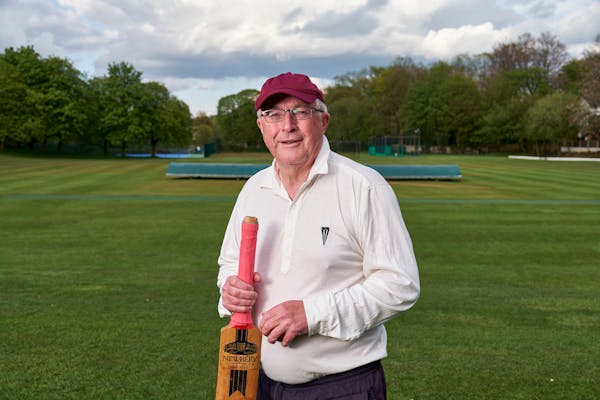“From Hero to Headline: Michael Slater’s Guilty Plea Marks a Grim Chapter in Cricket’s Legacy”
There’s something deeply unsettling about watching a national icon fall from grace — and when it happens in the way it just has with Michael Slater, the feeling is worse than unsettling. It’s gut-wrenching.
Slater, once the fearless opening batsman who made cricket feel electric, now finds himself behind court walls instead of cricket ones. He has pleaded guilty to a string of domestic violence charges. These aren’t vague accusations. These are serious, specific, and damning. And for fans of cricket, and for Australians in general, this is more than just a sad story. It’s a moment of reckoning.
In court, Slater admitted to stalking and physically abusing a former partner — sending relentless messages, showing up uninvited, and even reportedly choking her during one incident. These aren’t minor slip-ups. These are violent acts. Dangerous acts. Acts that no amount of cricketing brilliance can overshadow.
It’s hard to write those words. It’s even harder to read them. Because we all remember the man who would bound down the pitch with a smile that seemed to stretch from Perth to Sydney. But those memories don’t change reality. And the reality now is that Michael Slater has crossed a line — one that leaves another human being harmed, and a nation heartbroken.
It wasn’t always this way. After retiring from international cricket, Slater transitioned smoothly into a broadcasting career. He was a natural fit. Quick-witted, charismatic, and full of insights only an ex-player could offer, he became a fixture on television screens again. But behind the smiles and analysis, something darker was taking root.
Over the past few years, Slater’s name started appearing in the news for all the wrong reasons. Public incidents. Police interventions. Mental health crises. Friends and fans watched with growing concern as the former cricketer spiraled — but many hoped he’d find a way back.
That hope dimmed this month when the courtroom confirmed what many feared: Slater’s behavior had gone beyond personal crisis. It had become criminal.
The court heard that his messages to the victim were not only excessive but threatening. That he’d ignored pleas to stop. That he’d violated boundaries, both emotional and physical. And most disturbingly, that he’d done so with force.
For her part, the victim has remained mostly silent. And that silence speaks volumes. Survivors of abuse often choose privacy not out of weakness, but as a way to reclaim control — something that had been taken from them. She deserves peace, not publicity.
Meanwhile, Slater’s legal team has pointed to his bipolar disorder and substance issues as contributing factors. There’s no doubt mental illness can complicate behavior. It clouds judgment. It amplifies emotion. But it doesn’t erase accountability. And it certainly doesn’t undo harm.
Let’s be clear: acknowledging someone’s mental illness doesn’t mean excusing what they’ve done. It means understanding the full picture — and still holding them responsible.
And yet, in the face of all this, where is Cricket Australia? Where are the voices from his former teammates? The people who once sat beside him in commentary booths and locker rooms?
The silence is deafening.
We’ve seen this before — in sports, in politics, in Hollywood. When someone powerful or popular is accused, too many people choose to say nothing. They hope it blows over. They call it “personal business.” But domestic violence is not personal business. It’s a public crisis. And when someone with fame and influence is guilty of it, the responsibility to speak up becomes even greater.
To be honest, this article shouldn’t even be about Michael Slater.
It should be about the woman he hurt.
It should be about the many women in Australia — one dies every week at the hands of a current or former partner — who live with fear, who rarely see justice, who are often disbelieved or ignored.
It should be about the way we still, even now, excuse or soften abuse when the abuser is someone we once admired.
But this is the world we live in — a world where sportsmen are given second chances before their victims are believed, where reputation buys silence, and where apologies, when they do come, are too little and far too late.
Slater’s sentencing will happen soon. Whether he serves time or not, one thing is already clear: the damage is done. His cricket legacy will never look the same. And for the woman at the center of this story, the trauma won’t fade just because the headlines eventually do.
What we can hope for — what we must hope for — is that this moment doesn’t pass quietly. That it sparks real conversations. That it forces cricket, and all of us, to take a harder look at how we respond when someone we love does something unforgivable.
Heroes aren’t just measured by how many runs they score or games they win. They’re measured by who they are when no one’s watching. And in that arena, Michael Slater has failed.



